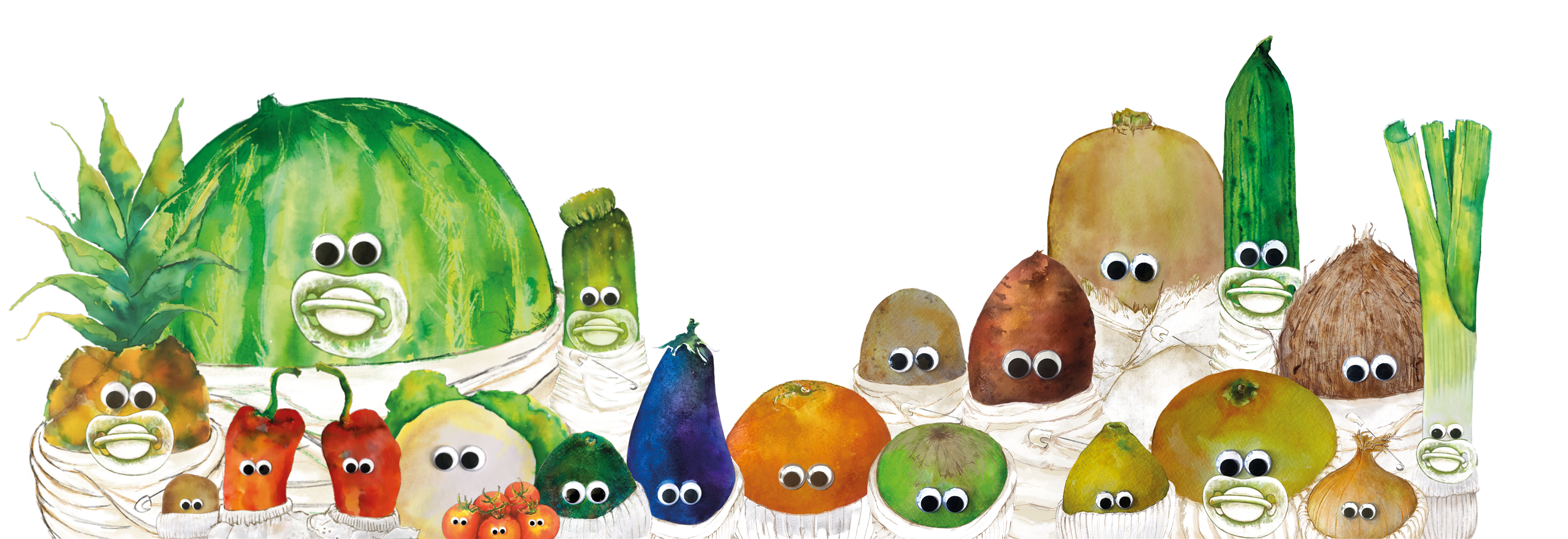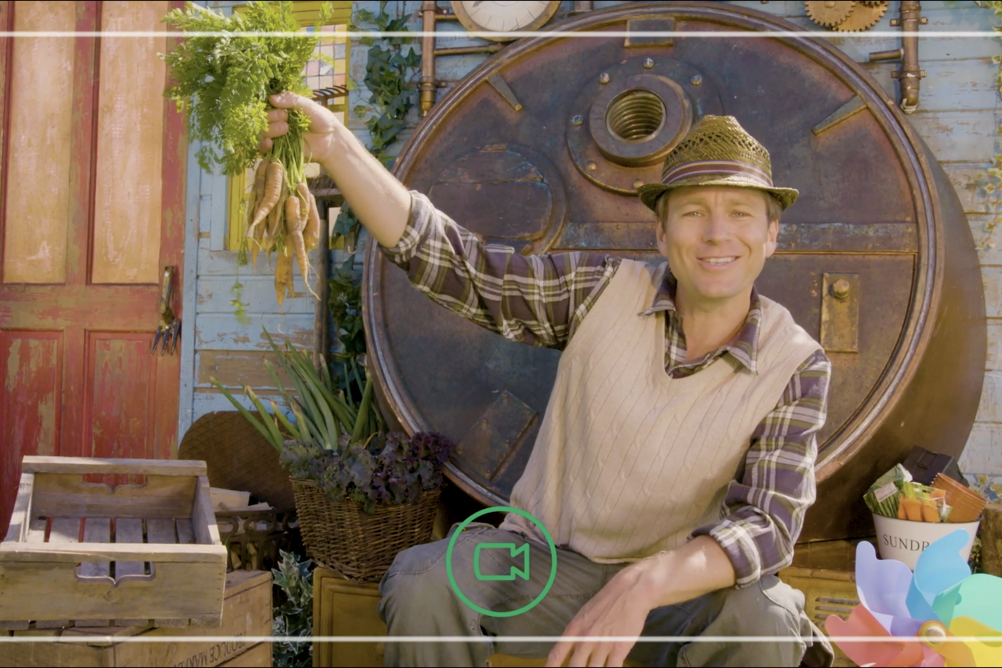
There has been a large rise in children presenting in settings with additional needs since the Covid-19 pandemic. Consequently settings are under increased pressure to find resources to support skill development including personal, social and emotional development.
Let’s Grow, created by husband and wife team Ben and Mimi Faulks, is a project with its roots in a street theatre show created in 2006. It uses baby fruit and vegetable characters to facilitate learning in a fun and imaginative way.
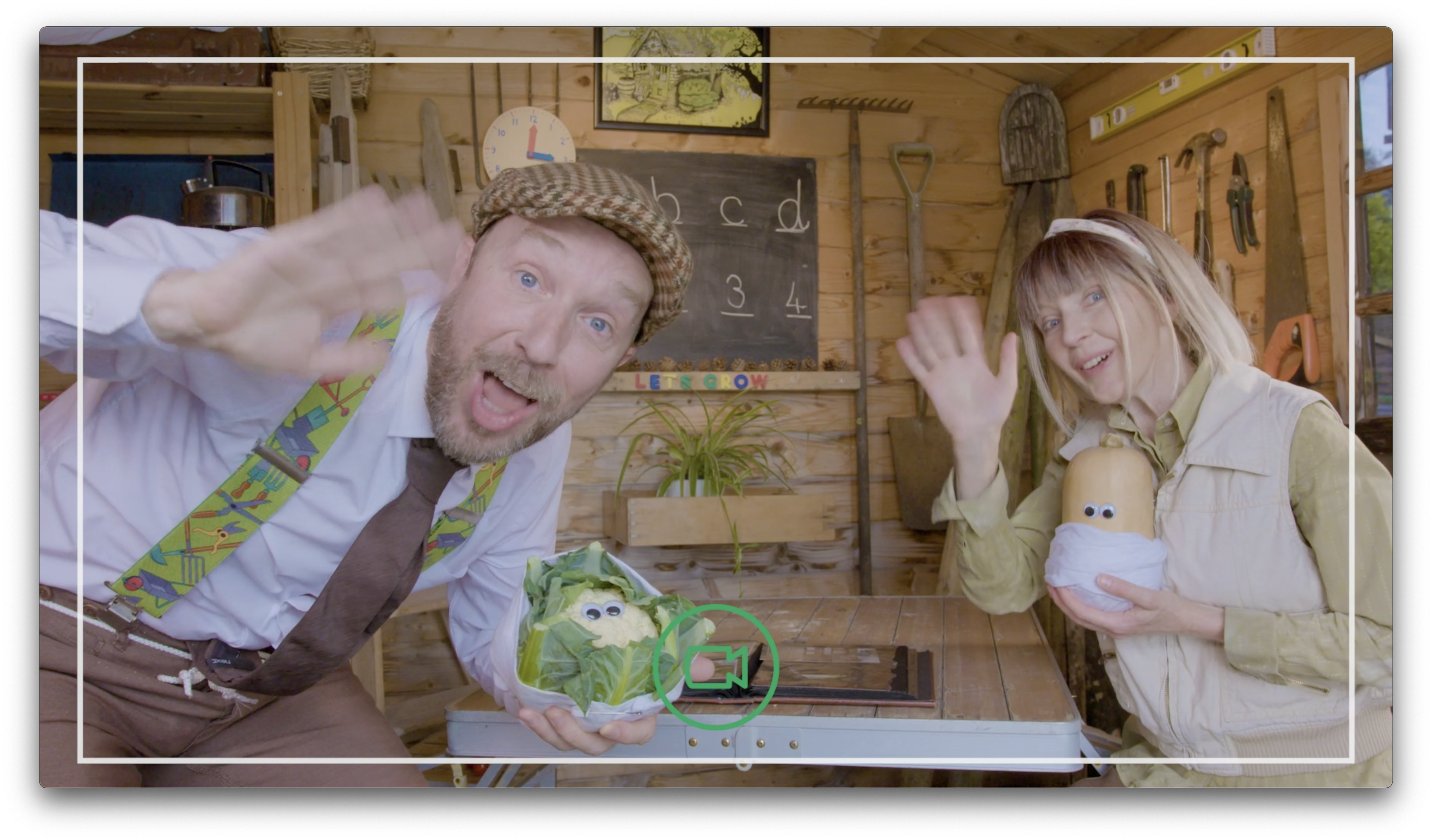
Video call still of the Nannies, Bob & Flo with Peep the Cauliflower and Drop the Butternut Squash
Characters visit the setting and children are invited to learn about and care for them, developing their PSE skills. Through imaginative and immersive play, children explore gardening, growing, nurture and healthy eating.
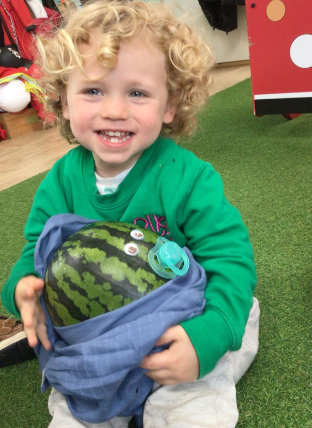 “It’s so lovely to see the children interact with the baby vegetables,” said Paige Trott, who works at Polka Dot Farm Nursery in Billericay, Essex.
“It’s so lovely to see the children interact with the baby vegetables,” said Paige Trott, who works at Polka Dot Farm Nursery in Billericay, Essex.
“The children absolutely love giving them a cuddle and caring for them, while also learning a lot about and through the baby vegetables.”
The theatre show transitioned to TV in 2009 with an award winning CBeebies show, Mr. Bloom’s Nursery, loved and watched all around the world. In CBeebies Land at Alton Towers people could enter Mr. Bloom’s Allotment and help care for Mr. Bloom’s famous veggies.
“We wanted to teach the children to be caring, to be kind,” added Paige. “And to help children learn about feelings.
“The generation we’ve got now in settings are children born during Covid-19, so we have some who are a little bit nervous and need their confidence building,” she said.
Polka Dot Farm Nursery looks after 85 children each day and has used Let’s Grow since opening in November 2023.
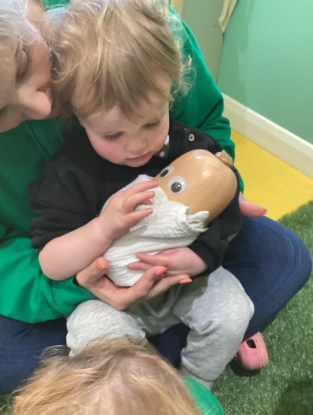
Paige, who leads the nursery’s use of Let’s Grow, added they are seeing children struggling more in the settling in period, talking in groups, or having trouble transitioning between rooms. The fruit and vegetable characters offer a way for children to empathise with them, allowing them to better understand how they are feeling.
The setting used Peep the Cauliflower, a nervous character, to support a child who was really nervous and unsettled when they first started.
“We made them feel it was their role to look after Peep, who was feeling similarly to them. That allowed them to understand their feelings more and feel more secure and confident, taking on this role of looking after Peep. And realise they were also safe and being looked after by staff.”
Paige works mainly with two to four-and-a-half year olds, but has experience working across the setting.
She said: “For children who have speech and language delays, and need help with social settings, the idea is for them to be able to care for the baby vegetables and speak up and use their voice. And they’ve really benefitted from it.”
Users of Let’s Grow have access to an online platform which hosts all the learning materials needed for the 28 sessions provided. Practitioners can navigate through depending on how they want to use the baby fruits and vegetables and/or follow the interests of children organically.
“It’s like a spider diagram,” said Paige. “There are so many ways to go depending on what the children ask. This allows children to take ownership of their learning through their questions. It’s fantastic.”
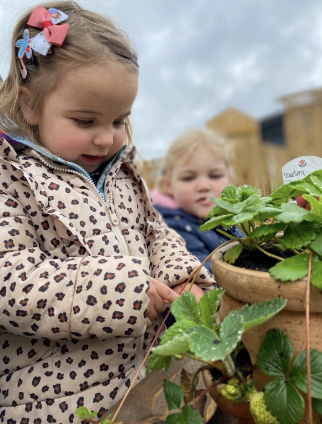
Sessions are targeted to provision for babies under two, up to five-year-olds. Each session contains everything needed to deliver it, including a comprehensive plan, multimedia resources, curriculum linked activities, reading suggestions and step-by-step instructions to make each character. There’s even a handy checklist demonstrating which of the seven areas of learning and early learning goals can be met through each activity. Additional resources include a ‘Get Growing Guide’, support for healthy eating, recipes and enhanced continuous provision ideas.
“The online portal is really easy for practitioners to use,” said Paige. “It has all the resources you need in one place, that link to the EYFS.
“It’s a very versatile system. We can use as much of it as we want, and it’s really helpful for us to be able to integrate it into our daily working.”
Paige emphasised how, alongside Let’s Grow being a strong resource for children who need more support with PSE skills, it also offers so much for the wider class.
“It really is a one stop shop for everything you might need,” Paige said. “So you only need to invest in one resource, and you’ve got provision that will benefit everyone.
“It’s very diverse and inclusive; every child can benefit from this resource and the day-to-day learnings. And this is showing because we’re growing cabbages, lettuce and peppers in our setting.“It provides a multi-dimensional experience – what children are learning they have practical experience of.”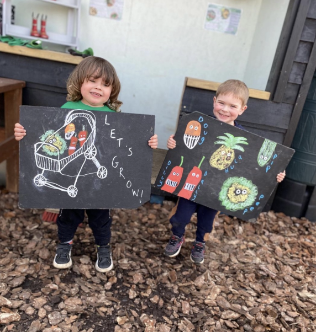
She added: “I would definitely recommend it for settings.
“Some of the children have only been here for six or seven months. But the changes we’ve seen in them from using this resource have been amazing.
“Sometimes I look across the room and can’t believe, for example, that that child is now speaking!”
Paige added: “When you see a child pushing the baby onion in a buggy following a session, it’s those moments that really make you understand why we do this. They are involving the character in their play and taking it upon themselves to extend their learning further.”
You can find more information about Let’s Grow and their quirky cast of fruit and vegetable characters at www.letsgrow.org.uk.
